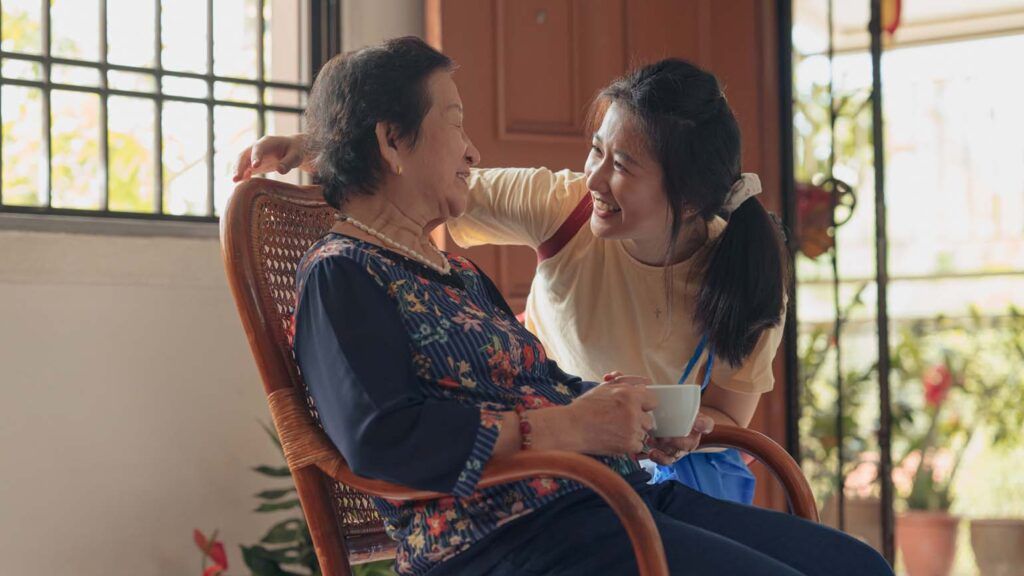When you’re responsible for family caregiving on a daily basis, you know how tough it can be to access all the support and assistance you require. It takes a village—in other words, the combined efforts of communities, health care systems, services and government —to meet the needs of each and every family caregiver. In your role as caregiver to your loved one, you are integral to care in this country. The AARP Public Policy Institute reports that the value of services that unpaid caregivers provided in 2017 was an estimated $470 billion. It exceeds Medicaid spending for health care and long-term services and supports put together.
The Purpose of the RAISE Family Caregivers Act
Many caregivers do without respite and other necessary services, financial and job security and education to deal with daily challenges. As a way to help meet these needs, the Recognize, Assist, Include, Support, & Engage (RAISE) Family Caregivers Act was signed into law in January of 2018 to develop a national family caregiving plan to:
- Expand person- and family-centered care in long-term care and other health care environments.
- Include caregivers and the older adults they care for in the evaluation and coordination of programs and services.
- Arrive at quality sources of information, education, training, referrals and care coordination.
- Encourage opportunities for caregiver respite.
- Analyze financial security and job setting issues that caregivers face.
- Deliver vetted services based on meeting the needs of family caregivers and their loved ones.
To read the Act in its entirety go to: RAISE Family Caregivers Act.
The 5 goals of the RAISE Family Caregiving Advisory Council
The RAISE Family Caregiving Advisory Council was formed to examine the wide range of needs of family caregivers and their older loved ones. The Council spent several months gathering caregiver stories and reviewing information on challenges that caregivers encounter. Then it made 26 recommendations as part of a national plan focusing on these needs. On September 22, 2021 the Advisory Council released its initial report to Congress, laying out the following goals:
- Expand awareness, outreach and education of the role of family caregivers as a way to improve their physical, emotional and financial well-being.
- Recognize, engage, and support family caregivers as key partners of health care and service providers.
- Ensure family caregivers have access to an array of flexible person- and family-centered programs, supports, goods and services that meet the diverse and changing needs of family caregivers and their loved ones.
- Protect and enhance family caregivers’ lifetime financial and employment security.
- Engage family caregivers as stakeholders in national research and data gathering efforts. This research will document their experiences, translate evidence into best practices, contribute to the development of person and family-centered services, and further the progress of the National Family Caregiving Strategy.
To read the report in its entirety, go to: RAISE Family Caregivers Act Initial Report to Congress.
The 15th Annual Katz Policy Lecture on the RAISE Family Caregivers Act
On October 4, 2021, Benjamin Rose Institute on Aging held its 15th Annual Katz Policy Lecture, sponsored by AARP Ohio, featuring the co-chair of the RAISE Family Caregiving Advisory Council, Dr. Alan Stevens. This lecture gives both caregivers and industry professionals a look into the Council’s work and recommendations. A panel of experts including Meg Kabat from the US Department of Veterans Affairs, Dr. Philip McCallion from Temple University School of Social Work, and Laura Thornhill from Alzheimer’s Impact Movement, responded by giving their thoughts on how caregivers from diverse backgrounds could be impacted by the recommendations, and shared their ideas on how the Act should proceed.
Watch the 15th Annual Katz Policy Lecture here.
What can you do to stay involved?
Understanding that caregivers have an array of needs and that it’s important that they be met is a great first step. However, there is much you can do if you wish to become involved in this effort. To stay apprised of the RAISE Family Caregiving Advisory Council and its work, you can view previous meetings, follow its agenda and review information on its members by visiting the Administrative for Community Living website. If you are interested in participating in research, a goal set forth by the Council, you can learn more here.





